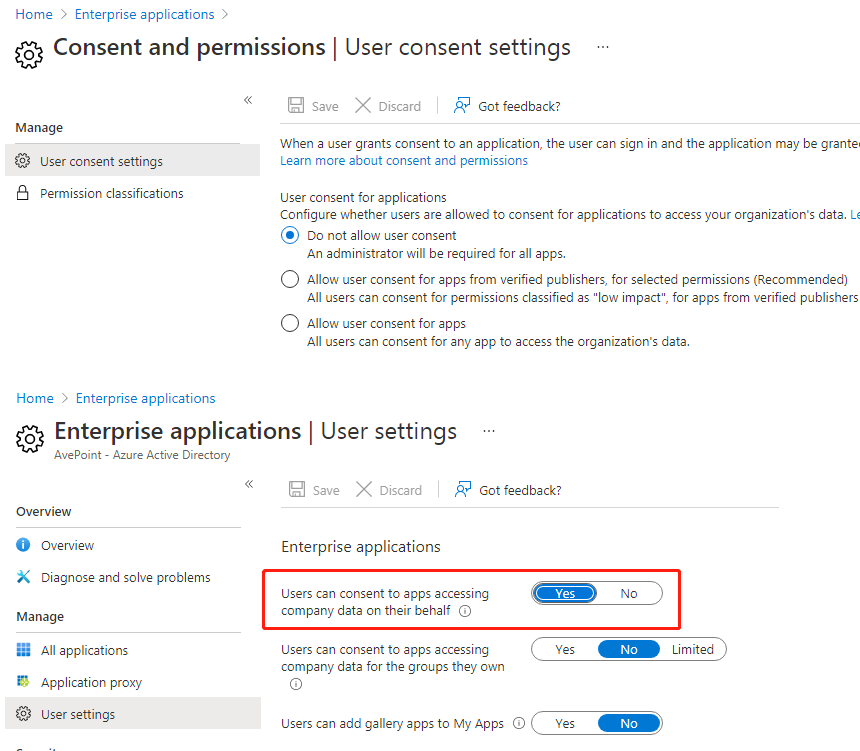Hi @Anonymous • Thank you for reaching out.
There is no difference between these two settings. In fact, both represent the same thing and if you change one the other corresponding setting will change automatically.

For example:
If you select Do not allow user consent option (in the first screenshot), the toggle button for Users can consent to apps accessing company data on their behalf (in 2nd screenshot) will be set to NO automatically.
And if you toggle the button to YES for Users can consent to apps accessing company data on their behalf option (in 2nd screenshot), Allow user consent for apps will automatically be selected under user consent settings (in the first screenshot).
Note: The change made at one blade may take a few seconds to reflect on the other blade in the portal, but it will take effect immediately.
-----------------------------------------------------------------------------------------------------------
Please "Accept the answer" if the information helped you. This will help us and others in the community as well.

